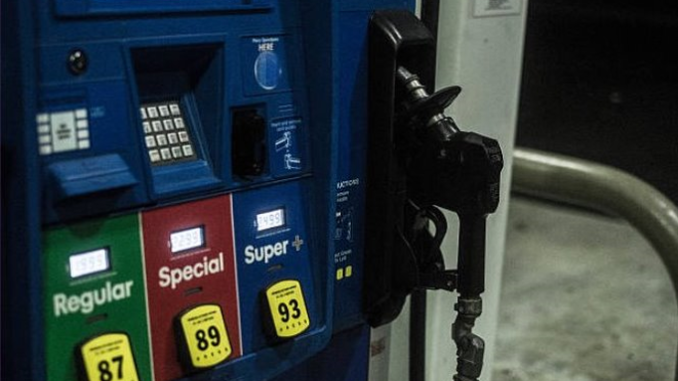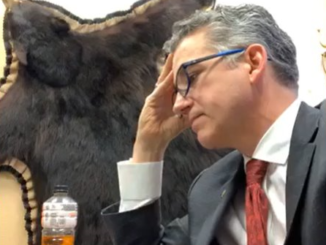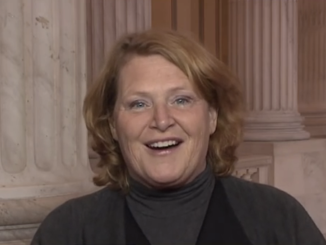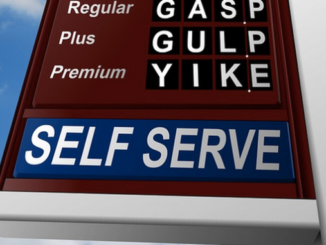
Republicans in general are known as the party of limited government, low taxes, and fiscal responsibility. Unfortunately, this has become more of a catch phrase than a reality. And although many Republicans will argue that, the numbers hold true at both the federal and state levels that this is indeed the case.
One issue that it appears North Dakota’s Republicans are going to have the opportunity to prove just how deep their Republicanism runs is in regards to the Motor Fuel Tax. That’s the state’s official name for what some simply refer to as “the gas tax”.
As you’re probably aware, there are both federal and state taxes for fuel purchases. In fact, just yesterday White House economic advisor Gary Cohn apparently resurrected the idea of raising the federal gas tax:
“Cohn, the director of the National Economic Council, told a group of moderate Democrats and Republicans they would have the opportunity to vote to increase the gas tax when Congress considers an infrastructure package early next year , Politico reported. Cohn made the remark while discussing elements of the administration’s $1.5 trillion tax cut with the Problem Solvers Caucus, according to Politico.” (Emphasis Added)
The federal gas tax is 18.4 cents a gallon and has not been raised since 1993. A recent article in the Grand Forks Herald advocated for raising it. And in a surprise to many, Say Anything Blog’s Rob Port agreed with the Herald. In addition to traveler’s nation-wide facing the prospect of a federal gas tax hike, North Dakotan’s may face a similar proposal with the state’s Motor Fuel Tax. As a result of last Legislative Session, the interim Government Finance Committee was tasked with the responsibility to:
“Study the funding mechanisms and options available to the Department of Transportation, political subdivisions, and public transportation providers, for road construction, maintenance, other transportation infrastructure needs, and transit services.”
The federal gas tax hasn’t been raised since 1993 and North Dakota’s Motor Fuel Tax hasn’t seen an increase since 2005.
In a memorandum to the interim committee, it shows that between 1983 and 2005 the state’s fuel tax was a topic of discussion nearly every Legislation Session. And in most instances it was modified in some form or another– often as increases.
There was an occasion in 1989 where the Legislature referred a proposed raise from 17 cents a gallon to 20 cents, but the voters shot it down. Then in 1997 the Legislature raised it to the 20 cents mark anyhow.
After another eight years – in 2005 – the Legislature raised it again to 23 cents– where it still sits today. This fact was not only pointed out to the interim committee in their meeting on August 2, 2017, but it was a topic of discussion at the Association of Counties recent Annual Conference as well. In fact, an entire presentation was made on the subject by Executive Director Russ Hanson of the Associated General Contractors of North Dakota.
At the aforementioned Annual Conference, Terry Traynor – who is an assistant director with the Association of Counties – said this on the subject:
“We can’t maintain the roads that we have, in the condition that we have, with this sort of funding structure. We need to come together and have those discussions.”
So, is a raise in the state’s Motor Fuel Tax a necessity to help remedy issues with infrastructure? It seems the Association of Counties and Associated General Contractors of North Dakota believe so. Which, to some degree, is troubling to me. After all, the Association of Counties is funded with our taxpayer dollars. Is it appropriate for such an organization to use taxpayer dollars to advocate raising taxes on us?
And when it comes to the Associated General Contractors of North Dakota, the first line of the page describing their purpose says this:
“The only organization in North Dakota representing the interests of the commercial construction industry .” (Emphasis Added)
I think that is a very telling statement, which causes me to wonder who truly stands to benefit the most from an increase in the Motor Fuel Tax? That’s a question that is certainly debatable.
The fascinating thing to me about the Motor Fuel Tax is how much revenues have increased over the last ten years without raising the rate. In the 2005-2007 biennium , total collections were $160.8 million. In the 2013-2015 biennium, they were $461.1 million.
To be fair, we have to acknowledge that increased revenues in recent biennium’s are due in part to the Bakken Oil Boom. But having said that, revenues were increasing prior to that historic event as well.
I will admit that this issue has some fairly significant complexities– many of which you can see in the various sources I’ve cited. Things like population increase, miles driven, fuel consumption, fuel efficiency of vehicles, etc. are all worthy of discussion.
But in my opinion, one of the glaring failures of the current study being done by the interim committee is the fact that it doesn’t focus on efficiency in spending. And I think that before there is any consideration of raising the Motor Fuel Tax, the people deserve proof that current revenues are being utilized properly.
Far too often – at all levels of government – it seems that the first reaction during downturns in an economy is to look at how to squeeze more revenue out of the people. This is a backwards approach to government. Headed into the 2019 Legislative Session, the Republican-led Legislature should first be looking for ways to be more efficient instead of ways to raise more revenue.
Limited government, low taxes, and fiscal responsibility…
Sources:
1. https://www.cnbc.com/2017/10/25/top-wh-economic-adviser-cohn-reportedly-revives-idea-of-hiking-gas-tax.html 2. http://www.grandforksherald.com/opinion/our-opinion/4305309-our-view-maybe-now-time-raise-gas-tax 3. https://www.sayanythingblog.com/entry/time-raise-gas-tax/
4. https://www.ndaco.org/image/cache/Transportation_Financing_-_Terryand_Russ.pdf
5. http://bismarcktribune.com/news/state-and-regional/counties-look-to-gas-tax-to-fund-roads-and-bridges/article_832ed81f-5711-55f4-9b33-2433cf76c8e0.html 6. http://www.agcnd.org/about-us/
7. http://www.nd.gov/tax/data/upfiles/media/48thbiennialreport.pdf?20171026084606
8. https://www.nd.gov/tax/data/upfiles/media/52nd%20Biennial%20Report_with%20Bookmarks.pdf?20171026084135





